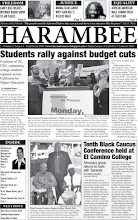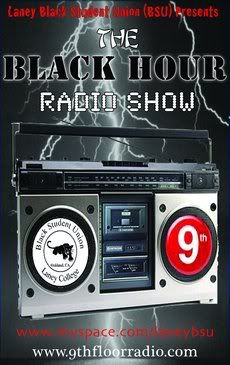Examines institutional barriers to academic success
Editors Note: This is part one of a three part “Focus” series.
By Reginald James
MANAGING EDITOR
Although community colleges are affordable, open access institutions that provide quality education for many Californians, statistically, they appear to be failing African American males.
African American males have the lowest average cumalitve grade point averages, earn the lowest percentages of degrees, and transfer disproportionately low compared to their percentage of the community college population throughout the state.
To address this educational crisis, the African American Men Education Network for Development (A2MEND) hosted its’ first annual African American Male Summit , “Critical Examination of Institutional Barriers in Community Colleges.” March 19 at Coastline College in Westminster.
Over 350 students, faculty and staff, administrators and trustees came together to “collaborate and form effective strategies to eliminate unnecessary barriers African American males are currently facing,” according to Dr. Shalamon Duke, dean of Counseling and special programs at Coastline.
“A2MEND is working hard to work continuously address the issue of the disappearing African American male in higher education,” said Duke, co-founder and the President–elect of A2MEND,” specifically,California Community Colleges.”
The summit consisted of four inter–related strands: the administrative strand, faculty/instructional strain, student support strand, and the student strand. The administrative strain consisted included college chancellors presidents, trustees and other senior managers. The faculty/instructional strain those involved and in issues relating to instruction strategies and practices while the student support strain included student services managers, counselors and staff who analyzed the impact of student support services on overall academic success.
The student strain was designed for students to be actively engage in their own academic empowerment.
The first step in all strains was “Identifying the Problem.”
The following were identified as the most common barriers to success of African American men at community colleges: disconnect between student and faculty expectations, poor academic preparation, little to no understanding of Matriculation process, no mentors, racism and hostile campus climate, and the low rate of involvement.
Students were actively engaged during the afternoon session of “Holla if you hear Me: Discussion on Strategies to Improve the Achievement of African American men.” Students were broke–out into groups to discuss ways to improve African America male success in college. Students shared what the institutions could do for the students and what students can do for themselves.
“This really motivated me,” said Berkeley City College student Sean Thompson. “I want to share what I learned with other brothers on campus.”
A2MEND plans on hosting another summit next year and continues to present workshops at institutions.
To learn more about A2MEND, or to schedule a workshop at your institution, visit http://www.a2mend.org.
Reginald James is Black Caucus Secretary and Harambee Managing Editor. Email him at harambeenews@gmail.com
Jun 15, 2008
Subscribe to:
Post Comments (Atom)












No comments:
Post a Comment